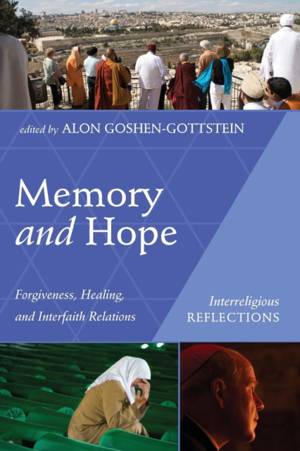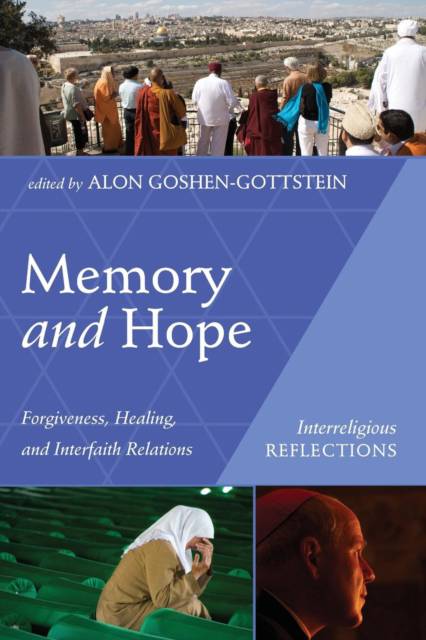
Bedankt voor het vertrouwen het afgelopen jaar! Om jou te bedanken bieden we GRATIS verzending (in België) aan op alles gedurende de hele maand januari.
- Afhalen na 1 uur in een winkel met voorraad
- Gratis thuislevering in België vanaf € 30
- Ruim aanbod met 7 miljoen producten
Bedankt voor het vertrouwen het afgelopen jaar! Om jou te bedanken bieden we GRATIS verzending (in België) aan op alles gedurende de hele maand januari.
- Afhalen na 1 uur in een winkel met voorraad
- Gratis thuislevering in België vanaf € 30
- Ruim aanbod met 7 miljoen producten
Zoeken
Memory and Hope
Forgiveness, Healing, and Interfaith Relations
€ 31,95
+ 63 punten
Omschrijving
This book tackles the core problem of how painful historical memories between diverse religious communities continue to impact--even poison--present-day relations. Its operative notion is the healing of memory, developed by John Paul II. Chapters explore how painful memories of yesteryear can be healed and so address some of the root causes. Strategies from six different faith traditions are brought together in what is, in some ways, a cross-religious brainstorming session that identifies tools to improve present-day relations. At the other pole of the conceptual axis of this book is the notion of hope. If memory informs our past, hope sets the horizon for our future. How does the healing of memory open new horizons for the future? And what is the notion of hope in each of our traditions that could lead to a common vision of good? Between memory and hope, this book seeks to offer a vision of healing that can serve as a resource in contemporary interfaith relations. Contributors: Rahuldeep Singh Gill, Alon Goshen-Gottstein, Maria Reis Habito, Flora A. Keshgegian, Anantanand Rambachan, Meir Sendor, Muhammad Suheyl Umar, and Michael von Bruck
Specificaties
Betrokkenen
- Uitgeverij:
Inhoud
- Aantal bladzijden:
- 174
- Taal:
- Engels
- Reeks:
Eigenschappen
- Productcode (EAN):
- 9781532659232
- Verschijningsdatum:
- 8/08/2018
- Uitvoering:
- Paperback
- Formaat:
- Trade paperback (VS)
- Afmetingen:
- 150 mm x 226 mm
- Gewicht:
- 272 g

Alleen bij Standaard Boekhandel
+ 63 punten op je klantenkaart van Standaard Boekhandel
Beoordelingen
We publiceren alleen reviews die voldoen aan de voorwaarden voor reviews. Bekijk onze voorwaarden voor reviews.








